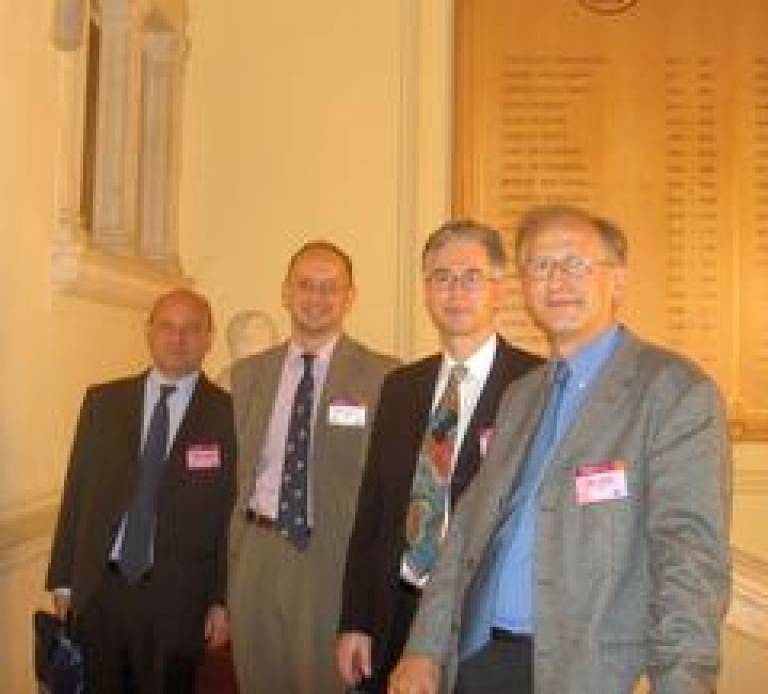Descartes Research Prize
11 January 2006
Professor Adrian Thrasher (UCL Institute of Child Health) is a member of an international research team on the European Initiative on Primary Immunodeficiencies (EURO-PID) project, which has won a prestigious European Union Descartes Research Prize.

The annual prize of €1 million was shared this year between five outstanding European research teams in genetics, climate change, astronomy, social sciences and disease management.
Led by Professor Alain Fischer (Institut National de la Santé et de la Recherche Médicale), EURO-PID is the result of collaboration between genetics experts from France, UK, Sweden and Italy.
The EURO-PID project focused on a group of more than 130 rare, genetically determined diseases known as primary immunodeficiencies (PIDs). PIDs leave sufferers, often children, prone to infection, lymph cell proliferation and autoimmune disorders.
A consortium of seven European research teams employed a combination of clinical immunology and basic scientific studies to understand the molecular mechanisms responsible for certain PID conditions. These efforts have produced a wealth of information about how cells in the immune system differentiate and accomplish their specific functions, as well as regulating immune responses.
During the five-year project, EURO-PID researchers described defects in 20 important defensive genes and successfully developed a promising form of gene therapy for two types of severe combined immunodeficiency (SCID). The researchers believe that the project's findings will continue to benefit patients through new tools to diagnose and treat diseases, and to determine their likely progression.
In 2002, Professor Thrasher and a multidisciplinary team at the UCL Institute of Child Health and Great Ormond Street Hospital successfully treated an 18-month old boy with severe combined immunodeficiency (X-SCID). Popularly known as 'boy in a bubble syndrome', it occurs in about one in every 100,000 male births and leaves children prone to life-threatening infections. X-SCID results in an absence of lymphocytes, the cells which are necessary for a healthy immune system. Since that breakthrough, nine patients have also received gene therapy and are leading normal, healthy lives.
"Gene therapy is still in its early stages, with many ongoing trials into the area," said Professor Thrasher. "Our team is constantly seeking to understand the basis of inherited immunodeficiency. We're obviously very hopeful that as research progresses this will provide the basis for development of more effective therapies, including gene therapy, for many other similar disorders."
Image: Members of the EURO-PID research team, Professor Thrasher second from left
 Close
Close

